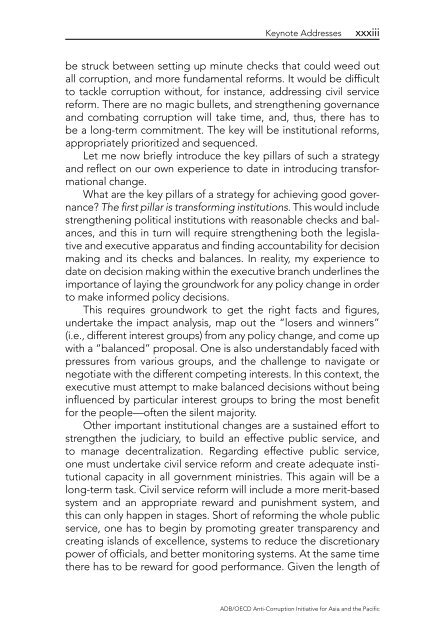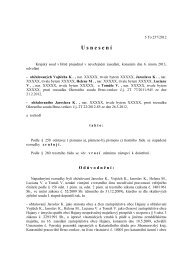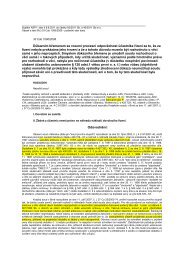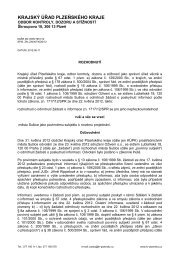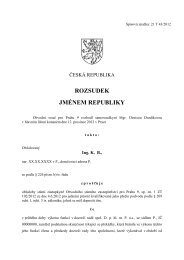Managing Conflict of Interest - Organisation for Economic Co ...
Managing Conflict of Interest - Organisation for Economic Co ...
Managing Conflict of Interest - Organisation for Economic Co ...
Create successful ePaper yourself
Turn your PDF publications into a flip-book with our unique Google optimized e-Paper software.
Keynote Addresses xxxiiibe struck between setting up minute checks that could weed outall corruption, and more fundamental re<strong>for</strong>ms. It would be difficultto tackle corruption without, <strong>for</strong> instance, addressing civil servicere<strong>for</strong>m. There are no magic bullets, and strengthening governanceand combating corruption will take time, and, thus, there has tobe a long-term commitment. The key will be institutional re<strong>for</strong>ms,appropriately prioritized and sequenced.Let me now briefly introduce the key pillars <strong>of</strong> such a strategyand reflect on our own experience to date in introducing trans<strong>for</strong>mationalchange.What are the key pillars <strong>of</strong> a strategy <strong>for</strong> achieving good governance?The first pillar is trans<strong>for</strong>ming institutions. This would includestrengthening political institutions with reasonable checks and balances,and this in turn will require strengthening both the legislativeand executive apparatus and finding accountability <strong>for</strong> decisionmaking and its checks and balances. In reality, my experience todate on decision making within the executive branch underlines theimportance <strong>of</strong> laying the groundwork <strong>for</strong> any policy change in orderto make in<strong>for</strong>med policy decisions.This requires groundwork to get the right facts and figures,undertake the impact analysis, map out the “losers and winners”(i.e., different interest groups) from any policy change, and come upwith a “balanced” proposal. One is also understandably faced withpressures from various groups, and the challenge to navigate ornegotiate with the different competing interests. In this context, theexecutive must attempt to make balanced decisions without beinginfluenced by particular interest groups to bring the most benefit<strong>for</strong> the people—<strong>of</strong>ten the silent majority.Other important institutional changes are a sustained ef<strong>for</strong>t tostrengthen the judiciary, to build an effective public service, andto manage decentralization. Regarding effective public service,one must undertake civil service re<strong>for</strong>m and create adequate institutionalcapacity in all government ministries. This again will be along-term task. Civil service re<strong>for</strong>m will include a more merit-basedsystem and an appropriate reward and punishment system, andthis can only happen in stages. Short <strong>of</strong> re<strong>for</strong>ming the whole publicservice, one has to begin by promoting greater transparency andcreating islands <strong>of</strong> excellence, systems to reduce the discretionarypower <strong>of</strong> <strong>of</strong>ficials, and better monitoring systems. At the same timethere has to be reward <strong>for</strong> good per<strong>for</strong>mance. Given the length <strong>of</strong>ADB/OECD Anti-<strong>Co</strong>rruption Initiative <strong>for</strong> Asia and the Pacific


